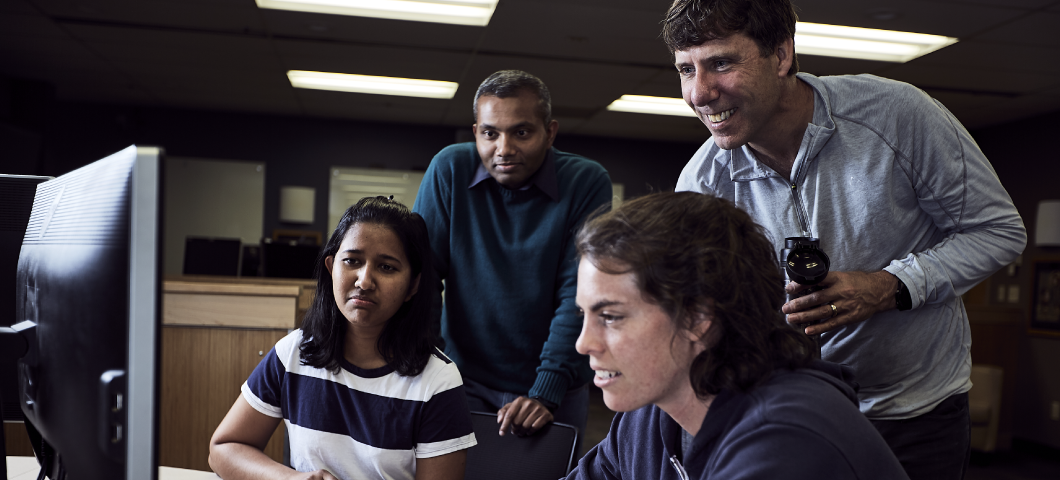Earth Sciences

The College of Letters and Science at Montana State University seeks five tenure track faculty members across our participating departments with a demonstrated record of or potential for scholarly activity (research, teaching, service, and creative work) that promotes the wellness of underserved communities broadly defined. This cohort hiring initiative is part of a university commitment to support our diverse student body, faculty, and staff.(See Montana State University’s Diversity & Inclusion Framework and Strategic Plan: Choosing Promise.)We know that representation of a variety of backgrounds and perspectives is critical to a rich and vibrant scholarly community that supports our students’ learning and upholds our land grant mission. We envision a wide variety of scholars who qualify as contributing to this theme and are particularly interested in people from diverse academic backgrounds whose experiences will contribute to the excellence of the MSU community. We imagine candidates who focus on the wellness of underserved communities and whose scholarship may speak but is not limited to rural communities, the environment, community empowerment, community sustainability (environmental, governmental, or otherwise), health disparities (racial, gender, or rural), climate, and teaching pedagogy.
As a participating department in the Cohort Hiring Initiative, the department of Earth Sciences is searching for a scholar who focuses on the wellness of underserved communities. This could include, but is not limited to, research and teaching interests in social vulnerability, environmental governance, natural hazards, long-term climate and environmental change, stakeholder engagement, resources and society (water and energy), and community resilience.
Department Overview
The Department of Earth Sciences at Montana State University engages in teaching and scholarship that focuses on social vulnerability, environmental governance, natural hazards, long-term climate and environmental change, stakeholder engagement, resources and society (water and energy), and community resilience. Climate change threatens to widen disparities affecting underserved communities regarding natural hazards, food, energy, water security, environmental contamination, and associated health risks. The department offers a B.S. degree in Earth Sciences with five options (i.e., Geography, Geology, Paleontology, GIS, and Snow Science). We also offer Master of Science and Doctor of Philosophy degrees in Earth Sciences with areas of specialization and faculty expertise crossing many subfields, including settlement geography, bioclimatology, GIS, planning, snow science, volcanology, paleobiology, dinosaur taphonomy, stratigraphy, and geomorphology. The department has 14 Tenure-track faculty, three research professors, and numerous instructors serving over 250 undergraduate and 50 graduate students.
Candidates with the potential to form connections with our faculty and students are encouraged to apply. To be successful, candidates must have a commitment to excellence in teaching and the establishment of a strong research program. Instructional responsibilities will include teaching lower division, upper division, and graduate courses. Faculty are also expected to advise undergraduate and graduate students.
How to Submit Your Application
Applicants will apply online through the applicant tracking system on the Montana State University Website at (https://jobs.montana.edu/postings/32831).For any questions or additional information, please contact Brenna Szott, our Search Committee Coordinator, at [email protected] or (406) 994-6909. She will be in direct contact with Michael Babcock, Professor and Head of the Department of Earth Sciences and member of the Department’s Cohort Hiring Committee.
